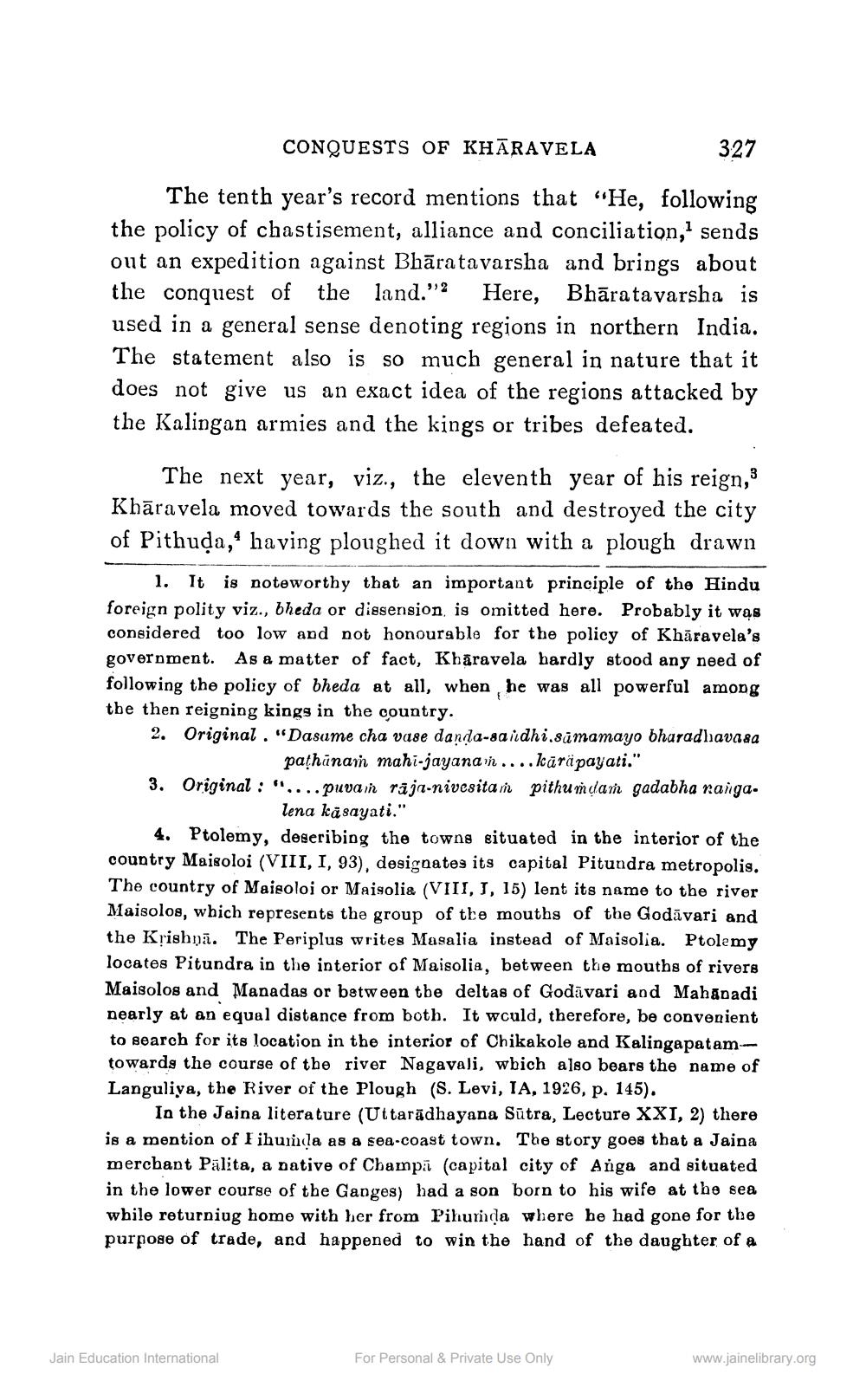________________
CONQUESTS OF KHĀRAVELA
327
The tenth year's record mentions that “He, following the policy of chastisement, alliance and conciliation, sends out an expedition against Bhāratavarsha and brings about the conquest of the land."? Here, Bhāratavarsha is used in a general sense denoting regions in northern India. The statement also is so much general in nature that it does not give us an exact idea of the regions attacked by the Kalingan armies and the kings or tribes defeated.
The next year, viz., the eleventh year of his reign, Khāravela moved towards the south and destroyed the city of Pithuda," having ploughed it down with a plough drawn
1. It is noteworthy that an important principle of the Hindu foreign polity viz., bheda or dissension is omitted here. Probably it was considered too low and not honourable for the policy of Khāravela's government. As a matter of fact, Khāravela hardly stood any need of
ring the policy of bheda at all, when he was all powerful among the then reigning kings in the country. 2. Original . "Dasume cha vase danda-saidhi.sūmamayo bharadhavada
pathinain mahi-jayanan .... käräpayati." 3. Original : "....puvain raja-nivesitam pithumdam gadabha naiga.
lena kasayati." 4. Ptolemy, deseribing the towns situated in the interior of the country Maisoloi (VIII, I, 93), designates its capital Pitundra metropolis. The country of Maieoloi or Maisolia (VIII, J, 15) lent its name to the river Maisolos, which represents the group of the mouths of the Godāvari and the Krishņā. The Periplus writes Masalia instead of Maisolia. Ptolemy locates Pitundra in the interior of Maisolia, between the mouths of rivers Maisolos and Manadas or between the deltas of Godāvari and Mahapadi nearly at an equal distance from both. It wculd, therefore, be convenient to search for its location in the interior of Chikakole and Kalingapatamtowards the course of the river Nagavali, wbich also bears the name of Languliya, the River of the Plough (S. Levi, 1A, 1926, p. 145).
In the Jajna literature (Uttarādhayana Sūtra, Lecture XXI, 2) there is a mention of Fihunda as a sea.coast town. The story goes that a Jaina merchant Pälita, a native of Champā (capital city of Anga and situated in the lower course of the Ganges) had a son born to his wife at the sea while returniug home with her from Pihurida where he had gone for the purpose of trade, and happened to win the hand of the daughter of a
Jain Education International
For Personal & Private Use Only
www.jainelibrary.org




